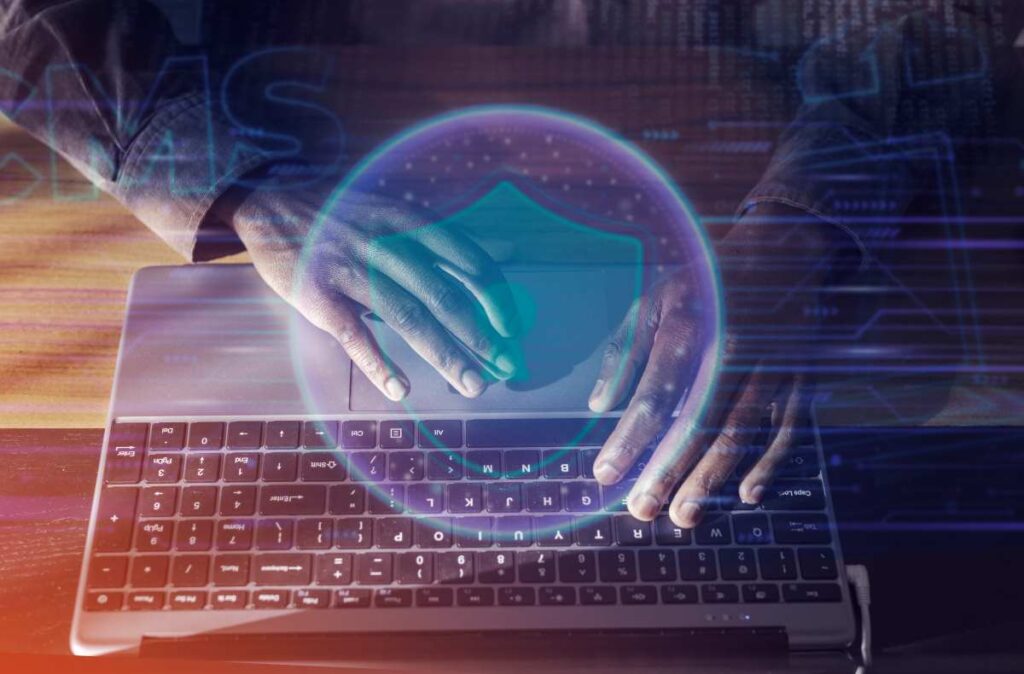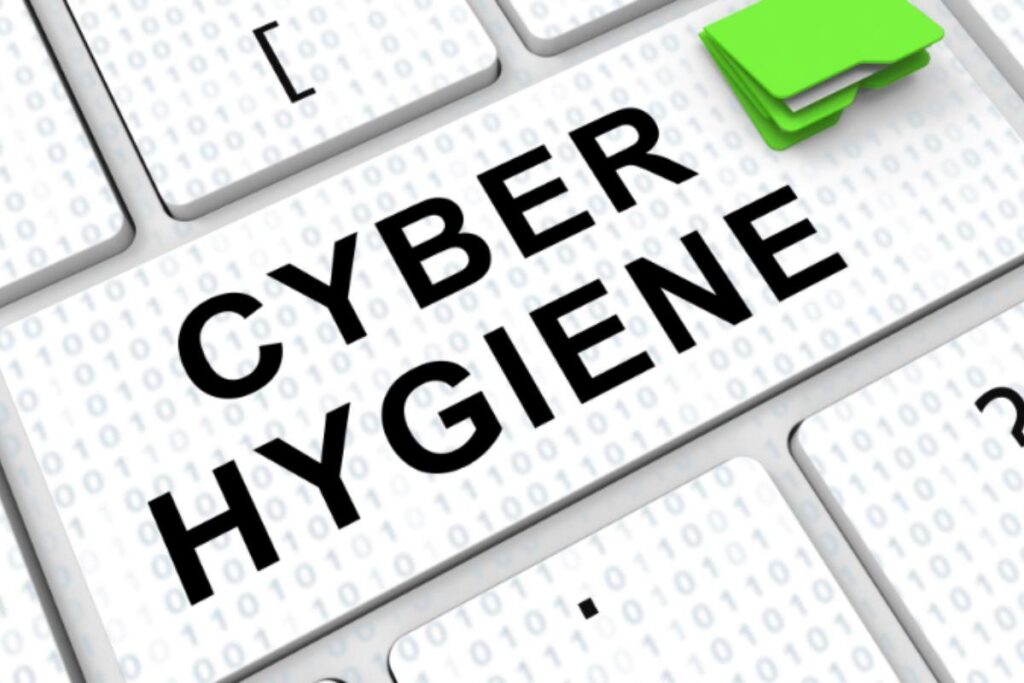We can compare the cyber hygiene with personal hygiene. Much like an individual takes care of and maintains his/her hygiene for maintaining good health and well-being, similarly, cyber hygiene helps you to keep your data safe and well-protected.
Further, cyber hygiene practices help your devices keep them safe from outside attacks such as malware.
Cyber hygiene is a cyber security practice that individuals and organizations perform regularly to maintain the security of users, devices, networks, and data.
So, if you are much interested to learn about cyber hygiene then you are on the right track.
Here, in this article, I will put together what is cyber hygiene, why is cyber hygiene important, cyber hygiene best practices, and common cyber hygiene problems.
Let’s dive into the deep!
What is Cyber Hygiene?

cyber hygiene is all about raining yourself to form good habits around cyber security. cyber hygiene practices help you to stay ahead of cyber threats and online protection issues.
Cyber hygiene refers to the steps and practices that online users take to maintain their system health and well-being.
These steps and practices sometimes become a part of the online user’s daily routine to ensure the safety of the data, devices, networking, and users.
Similar to physical hygiene, cyber hygiene is also conducted regularly to avoid common threats.
Cyber hygiene aims to keep safe all the hardware and software’s basic health and security. If you practice cyber hygiene regularly, it will keep your data safe and secure.
Why Is Cyber Hygiene Important?
In this digital era, we all face an ever-changing threat landscape.
So, it becomes more important than ever to create a routine and schedule that can prevent cyber criminals from causing any harm and damage to your system.
Cyber hygiene helps you protect your and your customer’s data from causing security breaches, stealing personal information, and installing different types of malware.
Various organizations rely upon cybersecurity professionals to carry out day-to-day tasks designed to keep the data, devices, and network safe and protected.
Sometimes, cyber attackers steal your end users’ sensitive data. These cybersecurity professionals also practice cyber hygiene to protect those data.
But, according to some researchers, this is a mistake. Instead, every employee of an organization should have a deep knowledge and understanding of cyber hygiene.
They should be aware of their role in protecting and maintaining the IT systems and devices. This practice will enable organizations to immediately response against cyber attacks.
If your organization has a routine cyber hygiene procedure, then your systems and data will be beneficial for two reasons. These include maintenance and security.
Maintenance is important for computers and software to run the system smoothly and efficiently. Day by day, the files become fragmented, and the applications become outdated. so it leads to increasing the risks of vulnerabilities.
So, if you maintain and follow a cyber hygiene routine strictly, you can spot many of these issues priorly. A well-maintained system is less likely to become vulnerable.
Security is the most important reason to incorporate a cyber hygiene routine into your enterprise regularly. Hackers, advanced viruses, intelligent malware, and identity thieves are all part of the threat landscape.
Indeed, predicting threats can be challenging, but preparing and preventing them can be feasible with cyber hygiene practices.
Cyber hygiene is important in many ways, including:
- Protect a business’s data and its clients’ information
- Keep devices and software running safely and effectively
- Avoid phishing attempts and other malicious activities
- Safeguard the system against malware and ransomware
- locate unmanaged assets
- Identify and fix outdated programs and admin privileges
- Identify unauthorized software on a system
Cyber Hygiene Best Practices
When there are multiple cyber threats, and numerous vulnerabilities, establishing a cyber hygiene routine is not as difficult as it seems.
If you can implement a few key practices regularly, you can dramatically improve the health and well-being of your system and network.
1. You can document all current programs and Equipment
You should document all the cyber-facing components first. These include hardware, software, and online applications. You can start by creating a list of these three components.
- Hardware: Computers, printers, fax machines, and mobile devices such as smartphones, and tablets
- Software: All the applications used by all the members on a particular network are installed on a particular network
- Applications: Web applications such as Dropbox, Google Drive, etc., and programs are directly installed on smartphones and the programs that are not directly installed on devices
2. Analyze the list of programs and equipment
After creating a list of all cyber-facing components, you need to start scrutinizing the list. And check for vulnerabilities. You need to wipe out any unused equipment and dispose of it properly.
For the software and applications that are not updated, you need to upgrade them. Also, you need to change all user passwords.
If the applications are not in regular use, you need to uninstall them properly. You can choose certain software and apps as the dedicated choice for certain functions for all the users.
For example, if both Google Drive and Dropbox are used for file storage then one must be deemed primary, and other software can be used as backup.
3. Construct a common cyber hygiene policy
The newly constructed network of devices and programs requires a common set of practices to maintain cyber hygiene.
If there are multiple users on the common network then these common practices should be documented on a set of policies. The people who have access to the network must follow these practices.
Here, I am providing a list of typical items that need to be included in a common cyber hygiene policy:
- Software Updates: You must look forward to upgrading your current software or you can install the better versions of that software. So, updating the present software must be included in your regular cyber hygiene practice.
- Password Changes: You need to change the complex password of your system regularly. It may prevent various malicious cavities and protect cyber security.
- Hardware Updates: You need to update the older computers and smartphones in a certain interval. It helps you to eliminate certain issues and maintain the performance of the system.
- Limit Users: The people who need admin-level access must have admin-level access. You should not provide excess capabilities to all the users.
- Manage New Installs: You must be careful regarding a new install. Each new install must be done properly and documented. It will help you to keep an updated inventory of all hardware and software.
- Back-Up data: You need to back up all the data to a secondary source that is a hard drive, or cloud storage. It ensures that all the data is safe during the event of a breach or malfunction.
Common Cyber Hygiene Problems
Some common cyber hygiene problems include:

1. Loss of Data
Online cloud storage, hard drives, and SaaS apps that store sensitive data that is not backed up can be vulnerable to data leaks, data breaches, hacking, and corruption. These may lead to data loss.
2. Misplaced Data
Poor cyber hygiene may lead to data loss in some other ways. If the data is not gone away or may not be corrupted, it can misplaced. It is very common to misplace data because of the myriad places the data is stored.
3. Security Breach
Many industries face constant and continuous threats to the data. Phishing, hackers, viruses, spam, malware, and an array of threats are present in the modern threats landscape. This threat scene is constantly in a state of flux.
4. Older Security Software
You need to continuously update antivirus software or security software to your system. This will help you to keep pace with ever-changing threat scenarios. Any outdated security software even software that has gone a few months without updating can not protect the data and network of your enterprise.
5. Out Of Date Software
You need to update all the software regularly, you must ensure that you are using the latest security patches. You must use the most current versions of the software throughout your enterprise. Out-of-date software is more vulnerable and it may be prone to attack malware.
FAQ
Why is cyber hygiene important?
Ans: The objective of cyber hygiene is to keep all sensitive data safe and protected. Also, cyber hygiene strengthens the capabilities of an enterprise to recover all the data when a successful attack occurs. The concept of cyber hygiene works similarly to personal hygiene.
What are the tips for cyber hygiene?
Ans: Cyber hygiene policies include installing antivirus and malware and scanning for viruses. You can use firewalls to stop unauthorized users from getting information. Besides, you can regularly update apps, web browsers, and operating systems on all devices of the network.
What is the first step in cyber hygiene?
Ans: The first step includes implementing a strong automated backup system in cyber hygiene policies. A strong automated backup system ensures that if something happens to your devices or data, the company will not lose important information, work, or operations.
Conclusion
Nowadays, cyber hygiene has become a trendy topic in all business segments. Cyber hygiene is the cyber security. In today’s ever-changing threat landscape, it becomes very important to construct a regular cyber hygiene routine.
An effective cyber hygiene routine will help you to protect against data loss, and you can protect your system from cyber criminals.
Many organizations rely on cybersecurity professionals but I suggest every employee must have basic cyber hygiene practices. This will ensure better incident response and provide an immediate response to any cyber-attacks.
Here, in this guide, I have provided all the relevant information regarding what is cyber hygiene and why it is important. You can go through this article and take proper steps to protect your system against cyber attackers!

